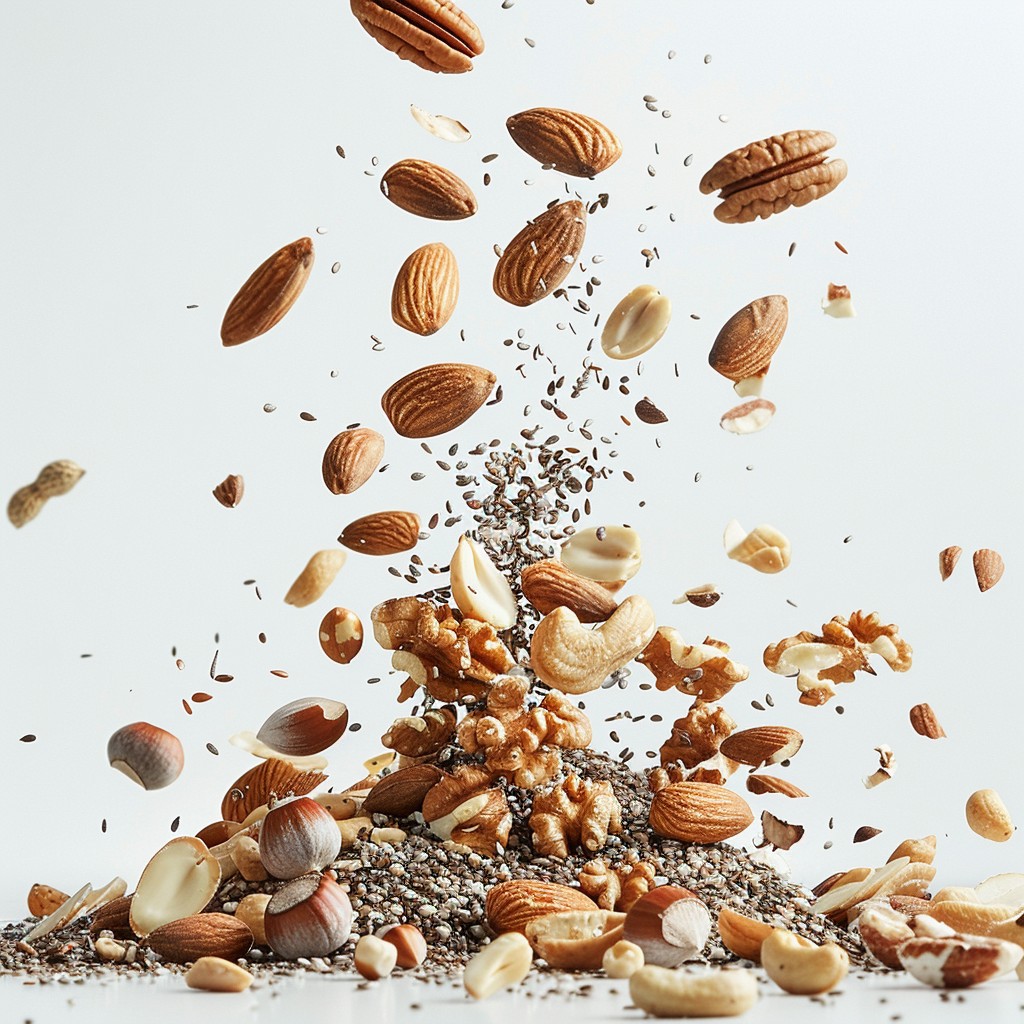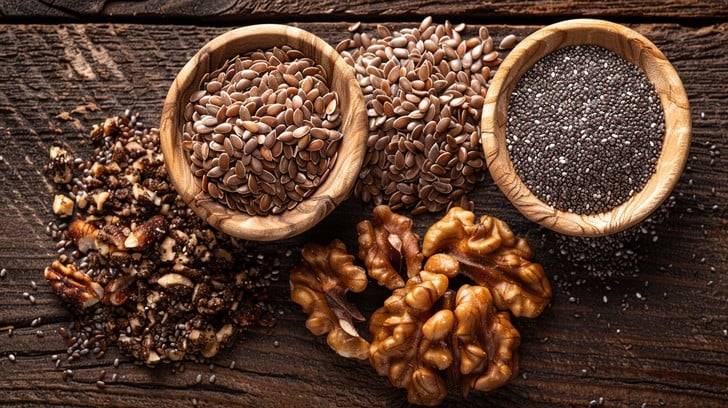What are Vitamins? (Definition and Meaning)
Vitamins are essential nutrients that our body needs to function properly. They play a crucial role in maintaining overall health, supporting the immune system, ensuring proper cell growth, and keeping our organs functioning at their best. Vitamins are organic compounds that our bodies need in small amounts for various biological functions. They are essential for maintaining good health, preventing diseases, and promoting normal growth. Since the body cannot produce most vitamins, they must be obtained from food or supplements.
In simpler terms, vitamins are the building blocks of our health. Without them, our body’s vital processes can’t work efficiently, leading to deficiencies and health problems.
Types of Vitamins
Vitamins are classified into two main categories: fat-soluble vitamins and water-soluble vitamins. Understanding the types and functions of each vitamin is crucial for maintaining overall health.
1. Fat-Soluble Vitamins
Fat-soluble vitamins are stored in the liver and fatty tissues. These vitamins can stay in the body for a long time and do not need to be consumed daily.
- Vitamin A: Essential for vision, immune system function, and skin health.
- Vitamin D: Helps in calcium absorption, maintaining bone health, and supporting the immune system.
- Vitamin E: Acts as an antioxidant, protecting cells from damage, and supports skin and eye health.
- Vitamin K: Necessary for blood clotting and bone metabolism.
2. Water-Soluble Vitamins
Water-soluble vitamins are not stored in the body and are excreted through urine. These vitamins need to be consumed regularly through diet or supplements.
- Vitamin B-complex (B1, B2, B3, B5, B6, B7, B9, B12): A group of vitamins that help with energy production, brain function, and cell metabolism.
- Vitamin C: Boosts the immune system, promotes healthy skin, and acts as an antioxidant.
Vitamins Chart
| Vitamin | Function | Food Sources |
|---|---|---|
| Vitamin A | Vision, skin health, immune function | Carrots, sweet potatoes, spinach, eggs |
| Vitamin D | Bone health, calcium absorption | Sunlight, fortified milk, fatty fish |
| Vitamin E | Antioxidant, skin health | Nuts, seeds, spinach, broccoli |
| Vitamin K | Blood clotting, bone health | Leafy greens, broccoli, cabbage |
| Vitamin B1 (Thiamine) | Energy production, nerve function | Whole grains, nuts, seeds, pork |
| Vitamin B2 (Riboflavin) | Energy metabolism | Dairy products, eggs, green vegetables |
| Vitamin B3 (Niacin) | Digestive health, skin health | Chicken, fish, peanuts, mushrooms |
| Vitamin B5 (Pantothenic Acid) | Hormone production | Meat, avocados, whole grains |
| Vitamin B6 (Pyridoxine) | Brain development, immune support | Bananas, chickpeas, potatoes, meat |
| Vitamin B7 (Biotin) | Hair, skin, and nail health | Eggs, almonds, sweet potatoes |
| Vitamin B9 (Folate) | DNA synthesis, cell growth | Leafy greens, legumes, oranges |
| Vitamin B12 (Cobalamin) | Red blood cell formation, brain function | Meat, dairy, fish, fortified cereals |
| Vitamin C | Immune support, collagen production | Citrus fruits, strawberries, bell peppers |
Vitamin-Rich Foods
Eating a balanced diet rich in vitamins is the best way to ensure you’re getting the nutrients your body needs. Below are examples of foods high in essential vitamins:
- Vitamin A: Carrots, sweet potatoes, spinach, liver, and eggs.
- Vitamin B-complex: Whole grains, nuts, seeds, leafy greens, and dairy.
- Vitamin C: Citrus fruits (oranges, lemons), strawberries, tomatoes, and bell peppers.
- Vitamin D: Fatty fish (salmon, mackerel), fortified milk, and exposure to sunlight.
- Vitamin E: Almonds, sunflower seeds, spinach, and avocados.
- Vitamin K: Leafy greens such as kale, spinach, and broccoli.
Deficiency Diseases of Vitamins
A lack of vitamins can lead to various health problems. Here are some diseases caused by vitamin deficiencies:
1. Vitamin A Deficiency
- Causes: Night blindness, dry skin, increased risk of infections.
- Prevention: Consume foods rich in vitamin A like carrots, sweet potatoes, and leafy greens.
2. Vitamin B12 Deficiency
- Causes: Anemia, fatigue, weakness, and nerve damage.
- Prevention: Eat meat, fish, dairy, and fortified cereals.
3. Vitamin C Deficiency (Scurvy)
- Causes: Fatigue, swollen gums, joint pain, and weakened immunity.
- Prevention: Include citrus fruits, berries, and tomatoes in your diet.
4. Vitamin D Deficiency
- Causes: Rickets in children (soft bones), osteoporosis in adults.
- Prevention: Spend time in sunlight and eat fortified dairy products and fish.
5. Vitamin K Deficiency
- Causes: Excessive bleeding and bruising, weak bones.
- Prevention: Eat more leafy greens like kale and spinach.
Which Vitamin is Good for Hair?
Healthy hair growth depends on a variety of vitamins. Here are the key vitamins for hair health:
1. Vitamin B7 (Biotin)
- Function: Biotin is essential for hair growth and strengthening hair follicles.
- Sources: Eggs, almonds, sweet potatoes, and spinach.
2. Vitamin E
- Function: Vitamin E improves scalp circulation, promotes healthy hair growth, and protects hair from damage.
- Sources: Nuts, seeds, and green leafy vegetables.
3. Vitamin A
- Function: Helps in the production of sebum (natural oil) in the scalp, keeping hair moisturized.
- Sources: Carrots, sweet potatoes, and spinach.
4. Vitamin C
- Function: Promotes collagen production, which strengthens hair follicles and prevents hair loss.
- Sources: Citrus fruits, strawberries, and bell peppers.
Vitamins for Hair Growth
If you’re specifically looking to boost hair growth, these vitamins play a crucial role:
- Biotin (Vitamin B7): Known as the hair growth vitamin, it strengthens hair and promotes growth.
- Vitamin D: Stimulates hair follicles and can help prevent hair thinning.
- Vitamin E: Antioxidant properties improve scalp health and circulation.
- Vitamin C: Supports collagen production, which is vital for hair strength and growth.
Conclusion
Vitamins are an integral part of maintaining a healthy body, from supporting the immune system to promoting hair growth and preventing diseases. Understanding the types of vitamins, their sources, and their functions can help you make informed dietary choices. To maintain overall health and avoid vitamin deficiencies, focus on a balanced diet rich in fruits, vegetables, whole grains, and lean proteins.
Whether you’re looking to strengthen your immune system, improve your skin, or promote hair growth, incorporating these essential vitamins into your daily routine will set you on the right path. If you’re unsure about your vitamin intake, consider consulting a healthcare professional or nutritionist to help you determine the best approach to meet your body’s needs.







